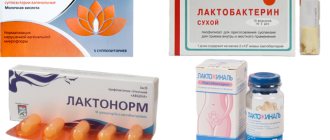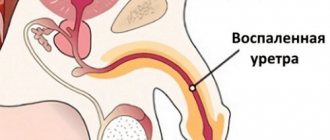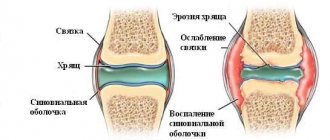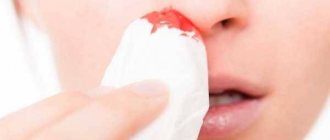Causes of dry labia
The appearance of vaginal discomfort is mainly associated with hormonal changes in the body.
As a result, dryness, burning, and irritation occur in the intimate area.
Dryness and burning in the intimate area when wearing trousers
The most common situations when a woman faces this problem:
- Pregnancy and postpartum period. The period of gestation is characterized by significant changes in hormonal levels, which affects the microflora of the vagina. The appearance of dryness and itching of the labia during pregnancy is fraught with scratching and the formation of abrasions, into which pathogenic microorganisms can enter. This is especially dangerous given the woman's position and the possibility of infection of the fetus. Therefore, if severe dryness of the labia and vagina occurs during pregnancy, you should definitely tell your doctor about these symptoms;
- Taking certain medications that reduce estrogen production (antihistamines, oral contraceptives, drugs to lower blood pressure, etc.);
- Menopause. Vaginal discomfort during menopause in women is also associated with hormonal changes. Estrogen deficiency leads to changes in the mucous membrane and loss of its elasticity, and local immunity decreases.
Why does vaginal dryness occur?
Causes of vaginal dryness also include:
- Use of products unsuitable for daily intimate hygiene (regular shower gels, soap). Washing gels for intimate care, as a rule, have a pH level corresponding to the physiological acid-base level of the genital organs, which allows maintaining the natural balance of the vaginal microflora;
- Leukoplakia. This is a disease that is characterized by a change in the upper layer of the epithelium of the cervix (hardening or keratinization) and is accompanied by itching, dryness and burning in the vaginal area;
- Frequent douching. This procedure can lead to vaginal dysbiosis, dryness, redness and peeling of the labia;
- Smoking and alcohol abuse. Alcohol and tobacco affect hormone production, which can lead to dryness and irritation of the labia majora and minora.
- Surgical interventions;
- Stress and depression. Unresolved stressful situations and prolonged depression lead to increased production of the hormone cortisol. The ratio of other hormones in the blood also changes, which can lead to vaginal itching and dryness.
Factors, prevention and treatment of peeling of the labia
Peeling of the labia is a symptom that the fair sex often encounters. It seems that if the skin peels, nothing bad happens, but it still brings a lot of inconvenience and discomfort. After a few days, peeling may begin to be accompanied by itching and excessive dryness, and these are alarming signs.
Peeling Outer Lips: Common Causes
If you are faced with such a delicate problem, you need to urgently visit a doctor; you should not self-medicate or let things take their course. Many infectious gynecological diseases are accompanied by identical symptoms, so you need to undergo a series of tests that will help make a correct diagnosis.
A fairly common cause is a deficiency of vitamin B2 in the body, which provokes vitamin deficiency. A woman may also be bothered by other symptoms: damage to the oral mucosa, peeling and redness of the nasolabial fold, eyelids, and seborrhea in the hair. Such signs appear due to an imbalance of energy and protein metabolism in the cells of the body, caused by a lack of animal products in the diet.
In a situation where intimate areas are peeling, you should use only natural soaps, showering and hair washing products. You can also use solutions based on medicinal herbs to wash the genitals.
If peeling skin is combined with other symptoms, such as itching and burning, this may indicate vaginosis, thrush, or another vaginal infection. In this case, you need to urgently contact a specialist - he will prescribe the necessary antibacterial therapy.
Peeling skin of the outer labia: serious reasons
Sometimes such a sign does not bode well. Often the labia peel off if a woman has sugar
Source
Dryness of the vagina and labia: what to do
How can you get rid of unpleasant sensations in the intimate area and what should you use to smear your labia when they are dry? To solve this problem, the Intimate Moisturizing Gel GINOCOMFORT is well suited. It was developed by specialists from the pharmaceutical company VERTEX and is used to eliminate vaginal discomfort caused by hormonal changes. This product has undergone clinical studies conducted at the Department of Dermatovenereology with the clinic of St. Petersburg State Medical University under the leadership of A.V. Inatovsky. and Sokolovsky E.V. Testing of the product has shown that it has a soft and delicate effect on the mucous membrane, replenishing the lack of natural lubrication. The natural components of the gel help relieve inflammation, have a healing effect and prevent the occurrence of microcracks and abrasions. The product has the necessary documents and quality certificates.
Dryness in the intimate area during menopause
There are quite effective folk remedies for treating this disease - various herbal infusions and baths. But the main thing to remember is that any alarming symptom is a reason to visit a specialist. Only after examination and study of tests is it possible to diagnose the cause and prescribe adequate treatment.
Itching of the labia - causes, prevention, possible diseases and their treatment
More than once, girls and women face such a problem as itching of the labia, which causes some discomfort. In this case, the intimate area looks reddened, swollen, and it burns. If you do not seek help from a specialist in time, the burning of the labia gets worse, constant scratching damages the mucous membrane, resulting in the formation of small cracks, abrasions, and ulcers.
Lack of treatment leads to progression of the disease. When visiting a doctor, this is indicated by inflammation of the labia (the medical term “vulvitis”).
Causes of itching of the labia
Prevention of itching of the labia
The first rule that should be followed is personal hygiene (this includes regular washing twice a day, preferably with a decoction of medicinal chamomile, sage, string or a weak solution of potassium permanganate, individual use of soap, as well as hygiene products, napkins and towels).
Secondly, during treatment you should avoid using hygiene products such as soap, intimate gels, foams, deodorants, etc. In case of vaginal dryness (this is the second common cause of itching), it is recommended to use therapeutic and prophylactic agents prescribed by a gynecologist.
The third rule is proper nutrition as the key to success in the treatment of intestinal dysbiosis, which is often the cause of itching in women during pregnancy. Diets that exclude fried, smoked and spicy foods will come in handy.
Give preference to comfortable, loose, cotton underwear that does not impede movement. Avoid tight pants. Do not forget that elevated air temperatures create favorable conditions for the development of bacterial infections, which can result in itching and redness of the labia.
Fourth Rule R
Source
Unpleasant sensations in intimate areas, video
Gynecologist Irina Garyaeva about vaginal dryness. Source – KVD – dermatovenerological dispensary
Features of urogenital disorders in perimenopause. Balan V. E., Ankirskaya A. S., Muravyova V. V., Tikhomirova E. V. // Materials of the V Russian Forum “Mother and Child”. – 2003. – P. 290.
The overactive bladder. Bulmer P., Abrams P. // Rev Contemp Pharmocother. – 2000. – No. 11. R. 1–11.
Characteristics of hot flashes in women of different age groups. Karahalis L. Yu., Fedorovich O. K. // AG-info. – 2006. – No. 2. – P. 26–31.
Pregnancy is a difficult period in a woman’s life. Expectant mothers need to take more careful care of themselves, but there is no need to worry about every issue.
During gestation, dramatic changes occur in the female body. Hormonal levels change, painful sensations appear in the abdomen and lower back, discomfort in the chest and genitals. All this helps the body prepare for the upcoming birth. However, some unpleasant symptoms sometimes indicate the development of pathology, so a woman should be attentive to severe pain and itching in the intimate area.
Itching in intimate places during pregnancy: physiological causes
There are many reasons for discomfort. They are different for each term.
In 1st trimester
The first trimester is the most difficult period. At this moment, hormonal changes occur in the woman’s body, and all organs begin to function under increased load. The reasons for the development of itching in the intimate area are:
- Diabetes. Many pregnant women develop gestational diabetes mellitus during pregnancy, which can be confirmed by taking a blood glucose test.
- Disorders of the functioning of the thyroid gland.
- Infection. Expectation of a baby negatively affects the health of the expectant mother; her immunity weakens and becomes susceptible to infection.
In the first trimester, the skin may become tender and sensitive. Therefore, itching may occur due to the use of low-quality hygiene products or wearing underwear made from unsuitable material.
In the 2nd trimester
The second trimester is the time when all the important organs of the baby are fully formed, now all they have to do is grow and develop. The uterus continues to grow and is already beginning to affect the “neighboring” parts of the body. The appearance of discomfort during this period may be due to a number of reasons:
- Irritation due to constant urine output;
- A hormonal surge, due to which female hormones are produced in large quantities and affect nerve endings.
Some girls have to take medications in the 1st or 2nd trimester. Itching can also occur due to their effects and creating additional stress on the body.
In the 3rd trimester
Most often, itching is diagnosed in the 3rd trimester of pregnancy. Its appearance is usually associated with one of the following reasons:
- Stretching of skin tissue caused by an increase in the size of the uterus.
- Violations of hygiene rules. Many women have problems with depilation and care in the intimate area due to a large belly.
- The psychological factor is fear of the upcoming birth.
- Irritation due to vaginal discharge.
- Formation of stretch marks on the skin in the lower abdomen.
It is necessary to promptly identify the cause of itching in order to eliminate it and prevent recurrence.
How do the labia change during pregnancy?
A distinctive feature of the onset of pregnancy is the changed coloration of the external genitalia. The woman herself rarely pays attention to this; the changes are more often noticed by the gynecologist during the examination. Usually this symptom appears at 10-12 weeks of gestation. Swelling of the labia due to physiological adaptation of the body is more often observed at the end of the 2nd and 3rd trimesters of pregnancy.
Read more Where do fibroids come from in women?
From the moment of conception, a woman’s hormonal levels change, and blood circulation in the pelvic area increases. The size of the labia also changes - they become larger and more elastic. The skin may become purple or dark in color, and sometimes appear blue.
Prevention of occurrence
To prevent itching
genital organs during pregnancy you should:
- Be examined by an obstetrician-gynecologist
, be
tested
together with your husband for
hidden infections
when planning a pregnancy; - Undergo a full medical examination by specialists
to identify chronic diseases and their treatment before conception; - Maintaining regular intimate hygiene
; - Wear underwear
only
made from natural fabrics
; - Avoid hypothermia
in cold weather; - Taking multivitamin complexes
for pregnant women.
Why do lips swell?
The external genitalia in pregnant women swell due to the following physiological reasons:
- excessive pressure of the amniotic sac on the pelvic organs, leading to blood stagnation;
- accumulation of a large number of fat cells in the subcutaneous fat of the intimate area;
- hormonal swelling spreading to the labia majora and minora.
Such conditions caused by these reasons do not require therapy. Some time after childbirth, swelling in the intimate area will gradually decrease. In some cases, swelling of the external genitalia is caused by pathological reasons (infection, varicose veins, hypersensitive reaction of the body to an irritant, etc.).
Phlebeurysm
As a rule, varicose veins develop by the middle of the second trimester. This pathology occurs quite often. The main reason is increased local blood flow. Another blood circulation circle is formed in the body of a pregnant woman, which nourishes the fetus. Accordingly, the blood flow to the labia majora and minora increases, and their enlargement is noted (for more details, see the article: varicose veins of the labia in a woman during pregnancy).
Symptoms of varicose veins may include:
- pain while walking;
- discomfort during intimacy;
- painful urination;
- heaviness in the groin area.
If the severity of varicose veins is insignificant, treatment is not carried out. The expectant mother needs to take walks more often, spend less time sitting, and preferably rest while lying down. If a woman’s condition is of concern, the doctor prescribes medications that improve blood flow in the problem area. Before childbirth, therapy is stopped, as the risk of bleeding is high.
Candidiasis (thrush)
After conception, a pregnant woman’s immune system is weakened, which often causes the development of fungal infections. Characteristic symptoms of thrush are:
- severe itching;
- burning;
- copious curdled vaginal discharge.
Candidiasis causes a lot of inconvenience to the expectant mother, the labia are constantly itching, and severe swelling appears. When scratching, microtraumas and abrasions occur on the inflamed mucosa, which often leads to a secondary infection.
When detecting the first signs of thrush, a pregnant woman should consult a doctor. The treating gynecologist will choose the safest treatment tactics. Typically, in such cases, patients are prescribed Fluconazole or Clotrimazole, and to maintain immunity, multivitamin complexes (we recommend reading: Clotrimazole: dosage regimen during pregnancy).
Other reasons
Changes in the body that occur during gestation are considered normal. There is no need to worry if the external genitalia are slightly swollen, change color and are a little painful. In cases where unpleasant symptoms cause significant discomfort, the expectant mother should not delay visiting the doctor.
Enlargement and inflammation of the genitals can also be associated with non-compliance with hygiene rules and the use of synthetic underwear that is too tight. Sometimes irritation occurs when allergens (washing powder, intimate hygiene products, soap or shampoo) come into contact with the skin.
Allergic reactions can be caused by foods and some medications that a woman used without any problems before pregnancy. Often the cause of discomfort in the groin area is an imbalance of the vaginal microflora, which results in inflammation and pain.
During gestation, a woman may experience high psycho-emotional stress. Changes in the level of hormones in the blood make the expectant mother capricious and irritable, which also affects the appearance of painful sensations in the intimate area.
Preparing for the diagnosis of vaginal diseases
To determine the causes of discomfort in the vagina, a number of tests are done:
- Bacterial culture
- Microscopic smear analysis
- Analyzes using RIF and ELISA methods for the presence of sexually transmitted infections
In some cases, it may be necessary to conduct tests for dysbiosis and the presence of parasites in the intestines. Only based on the test results obtained, the attending physician can determine the true cause of discomfort in the vagina. Before taking the necessary smears and cultures, it is recommended 1–2 days before:
- Stop using medicinal sprays, suppositories
- Avoid sexual intercourse
- Avoid douching and antibacterial agents
- Urinate 3 hours before visiting the doctor
These conditions are necessary to obtain the most accurate results, which will allow the doctor to determine the stage of the disease and prescribe the correct treatment.
Itching and its possible causes
There are many reasons why the labia majora and minora may become itchy. This mainly occurs with the development of the following gynecological infections:
- candidiasis;
- vulvovaginitis;
- gonorrhea;
- genital herpes;
- chlamydia and others.
Against the background of an infectious-inflammatory process, a woman may experience pain in the lower abdomen. Vaginal discharge becomes profuse, its color may vary (depending on the causative agent of the disease).
If the expectant mother becomes infected with genital herpes, rashes will soon appear in the intimate area, which look like small blisters filled with liquid. After the pimples open, a burning sensation and severe itching occurs, the female genital organs become inflamed and swollen.
Principles of treatment
If a woman notices that her lower back is strained, her stomach hurts, her external genitalia are swollen and greatly increased in size, to minimize the risk of complications, she should seek qualified help as soon as possible (see also: what to do if you have lower back strain during pregnancy ?). With the right treatment regimen, there is every chance of safely carrying and giving birth to a healthy baby.
At the initial examination, the doctor will take the appropriate tests. If the cause of unpleasant symptoms is an infection, treatment will be aimed at combating the infectious pathogen. For thrush, the patient is prescribed antimycotics, and for herpes, antiviral agents.
Read more Effective creams for facial pigmentation
Inflammatory processes in the vagina are stopped by douching with antiseptic solutions. If the cause of swelling and discoloration of the genitals is an allergy, it is necessary to limit contact with the allergen.
If the labia hurt during pregnancy with known disturbances in the functioning of the endocrine system, the patient is referred for consultation to specialists. Refusal of drug therapy can lead to serious consequences - both for the mother and for her baby.
Regardless of the cause of the pathology, treatment should be carried out under the supervision of the attending physician.
Itching due to external irritants
In the early stages of pregnancy, a woman’s hormonal background is actively restructured. At the same time, the mucous membrane of the external genitalia, which was previously dense and elastic, under the influence of hormones becomes looser, more porous and highly sensitive to the minimal impact of any external irritants.
The changes also affect the composition of the vaginal microflora - due to hormonal changes in the body of the expectant mother, the production of lactic acid increases, against which the number of yeast fungi may increase and the number of beneficial bacteria may decrease.
So, what external irritants can cause itching and burning during pregnancy:
- Wearing synthetic underwear, which cannot fully allow air to pass through, which creates a favorable environment for the active growth and reproduction of pathogenic microflora.
- Frequent douching. If a pregnant woman regularly performs this procedure, thus expecting to get rid of vaginal discharge, she risks breaking the protective barrier of the mucous membrane and changing the normal acidity of the intimate area.
- Active use of ordinary soap or shower gels for toileting the genitals. Such products easily dry out the vaginal mucosa and disrupt its normal microflora, so the expectant mother experiences itching of the labia and burning sensation in the vagina during pregnancy.
It must be remembered that throughout pregnancy, a woman should carefully monitor the nature of vaginal discharge. Normally, they have a milky or transparent color, uniform consistency, and there should be no foreign odor at all. If vaginal discharge during pregnancy is normal, there is nothing to worry about. If there are changes in their color and consistency, or signs such as itching and burning appear during pregnancy, you should consult a doctor.
Principles of trimester therapy
The effect of medications at different stages of pregnancy is different. And therefore, their appointment should be carried out taking into account the gestational age. When dealing with vaginal burning during pregnancy, you should adhere to the following principles:
- for up to 8 weeks, it is advisable to replace medications with folk remedies (for example, washing with chamomile infusion or laundry soap) or use them according to very strict indications;
- in the first trimester - only the safest drugs;
- in the second and third trimester, the range of drugs becomes wider and, if necessary, less safe drugs can be prescribed;
- local therapy mainly involves the use of vaginal suppositories;
- very often, after treatment, a prophylactic course of more gentle drugs is carried out.
It is important to follow all doctor's orders. If you have been prescribed any drug, then you should not try to replace it with cheaper analogues. This is fraught with aggravation of the situation.
Internal problems
The decrease in the body's immune defense during pregnancy is a physiological aspect - it is thanks to it that a woman gets the opportunity to normally bear and give birth to a healthy child. But, despite this undeniable advantage, the deterioration of immunity is due to an increased risk of getting sick over a long nine months.
Let's consider what pathological processes can affect the body of the expectant mother and, as a result, cause itching in the intimate area during pregnancy.
Infections
During the period of bearing a baby, various infectious factors can negatively affect the condition of the genitourinary system. In most cases, painful itching of the genitals is caused by diseases such as urethritis and cystitis. Their development is caused by inflammation affecting the urethra and bladder, as a result of severe hypothermia, overheating and subsequent infection.
A woman will be alerted to the onset of cystitis by an increasing burning sensation in the urethra during pregnancy with frequent painful urges to empty the bladder. In this case, the urine becomes cloudy in color and is released less than usual. Despite frequent urination, there is no relief; the genitals itch. The condition requires immediate treatment, as there is a high probability of complications in the form of an ascending kidney infection.
Candidiasis
Itching and discharge during pregnancy are often a symptom of thrush. Many pregnant women experience vaginal candidiasis because their immune system is weak to fully fight the pathogens of this pathology. Some even perceive it as a sign of pregnancy.
You can identify thrush yourself by the following symptoms:
- itching and cheesy white discharge during pregnancy;
- sour smell of vaginal discharge;
- discomfort when urinating;
- discomfort and pain during sexual intercourse.
Thrush must be treated. Usually, for this purpose, the doctor chooses drugs that are safe for the baby’s intrauterine development - Nystatin and Pimafucin. It is necessary to eliminate this disease before the 36th week of pregnancy, since the mucous membrane affected by a fungal infection can be seriously damaged during childbirth, and the baby’s oral cavity is also likely to become infected.
Dysbacteriosis
Dysbacteriosis or bacterial vaginosis develops in the expectant mother as a result of the displacement of the normal vaginal microflora by opportunistic microorganisms. The main signs of dysbiosis during pregnancy are a fishy odor from vaginal discharge and painful itching.
The exact cause of bacterial vaginosis is unknown. Experts believe that pathogenic microflora can invade the mucous membrane against the background of such predisposing factors as stress, hormonal changes, poor environment, harmful food, and long-term antibiotic treatment.
Herpes
A herpetic rash on the skin and mucous membrane of the intimate area and severe itching without discharge during pregnancy are alarming symptoms of genital herpes. If these clinical signs are diagnosed, you should consult your doctor, since self-therapy of this disease with antiviral medications is not recommended.
If diagnosis and treatment measures are neglected, herpes can be dangerous for pregnancy due to the occurrence of spontaneous miscarriage or developmental defects of the unborn baby. The sooner the expectant mother consults a doctor, the better.
Read more Small rash on the chest in women
Chlamydia
Infectious diseases, such as chlamydia, mycoplasmosis, ureaplasmosis and cytomegalovirus infection, do not cause specific clinical symptoms in a woman’s body that would indicate the presence of these pathologies. They can appear precisely at a time when a woman is least protected.
Chlamydia during pregnancy occurs with itching of the genitals, which intensifies after prolonged walking or during urination. This disease can negatively affect the normal course of pregnancy and cause spontaneous abortion or premature birth, as well as affect the intrauterine development of the baby, so it is necessary to treat the infection.
Parasitic diseases
Sometimes itching during pregnancy is the result of infestation by worms and pubic lice. In this case, fragments of parasites can be found on underwear or in feces. It is necessary to take tests to diagnose parasitic diseases, and if they are confirmed, the doctor will prescribe an effective and safe anthelmintic drug. For example, Piperazine is a drug that does not penetrate the systemic bloodstream of the expectant mother and at the same time successfully fights a wide range of helminths.
Other reasons
The diseases listed above are always accompanied by itching and burning, both in the early and late stages of pregnancy. But these are not all the possible factors leading to irritation of the genital organs of the expectant mother.
There are cases when itching and burning during pregnancy is a consequence of such a serious disease as diabetes. In this case, constant thirst and hunger and frequent urination occur. Sugar contained in urine causes increased dryness of the mucous membrane and skin of the genital organs, as a result of which the woman suffers from severe burning and itching in the intimate area.
Less commonly, vaginal itching during pregnancy occurs due to liver dysfunction. This condition is accompanied by clinical manifestations of jaundice - yellowing of the skin and sclera, darkening of urine, discoloration of feces and pain in the liver.
Also, the source of the problem may be disorders that have arisen in the endocrine system - hyper- or hypofunction of the thyroid gland. The same can be said about stress, which is often encountered in expectant mothers due to worries about imminent motherhood - in this case, psychosomatic processes are triggered in the woman’s body, which can cause symptoms such as itching and burning in the vagina during pregnancy.
Treatment of itching and burning during pregnancy
The doctor will pay attention to the consistency, color and smell of the discharge, take a smear to examine the flora, and possibly refer it for bacterial culture. It is advisable to get tested for sexually transmitted infections. And even if you are confident in your partner and have not had casual relationships yourself, you should not neglect this analysis. Sometimes infections do not make themselves felt for years, appearing only in stressful situations, which for the body is pregnancy. Some diseases have no symptoms at all and can be transmitted not only exclusively through sexual contact, but also through household contact: in a bathhouse, swimming pool, or when using public plumbing.
And only after receiving results with sensitivity to various drugs can you begin treatment under the guidance of a doctor. It is important to remember that since it is undesirable to take antibiotics during pregnancy, they are prescribed only in extreme cases and not at all stages. Therefore, no amateur performances. It is necessary to treat the infection, but it is important not to do harm or make it worse. Basically, when treating dysbiosis during pregnancy, doctors use antiseptic and anti-inflammatory drugs.
During treatment, it is important to avoid unprotected sex, and the partner must be examined and treated, otherwise all efforts will be wasted, and a new infection at a later date can result in serious problems for both mother and baby.
Of course, if it is impossible to carry out serious treatment for a pregnant woman, the maximum that a doctor can do is to relieve the exacerbation, alleviate or eliminate the symptoms. But after giving birth, the woman will need to take up this problem closely. And so that there is no burning sensation at all during pregnancy, it is better to take care of the health (including that of the unborn child) in advance.
Which doctor should I contact?
Solving a problem should always begin with identifying and eliminating the cause. Only a specialist can determine its source and choose tactics to combat it. To do this, the expectant mother is recommended to contact a gynecologist who is managing the pregnancy.
Any medications can be taken only with the permission of a doctor. Therapeutic agents are selected by a specialist depending on the gestational age, the cause of the pathological condition and its severity.
Less often, a woman is referred to other specialists, for example, to an endocrinologist if her blood sugar increases.
What to do if your labia itch during pregnancy?
The first thing a woman should do when discomfort occurs is to stop touching the affected area of skin. Excessive touching of it contributes to complications. If it does not go away on its own within 24 hours, then the help of a specialist is required. Depending on the cause of the disease, a specialist may prescribe treatment using traditional methods or medications.
Traditional methods
Traditional methods are the safest, but no less effective than taking medications.
- Lotions made from a decoction of sage and chamomile. You need to brew 1 sachet of medicinal herbs with 1 liter of boiling water and leave for 10-15 minutes. In the cooled broth, moisten gauze or cotton wool, and then treat the affected area of the body with it.
- Melissa tea. Melissa has amazing properties. It helps not only to eliminate the symptom of irritation, but also to calm the nervous system, which is important for expectant mothers. The recipe for its preparation is simple: you need to brew 1 teaspoon or 1 sachet of this plant with boiling water. It is recommended to drink the drink in the evening, before going to bed.
Drug effects
There are a number of drugs to eliminate discomfort that are allowed for pregnant women:
If necessary, antimicrobial or antifungal therapy (if an infection develops), antihistamines (for allergies) can be additionally prescribed.
How to get rid of discomfort?
Treatment must be prescribed by a doctor. But there are three drugs that are effective against itching and burning in the intimate area and have been tested during pregnancy.
Let's list them:
- Livarol. Suppositories that eliminate itching of almost any origin and in a short time. But you can use Livarol only from the second trimester of pregnancy. In just 5 days, the suppositories will restore the vaginal microflora and eliminate the cause of bacterial vaginosis.
- Clotrimazole. Effectively fights fungal flora. Expectant mothers are recommended Clotrimazole in the form of an ointment. The product is applied to the affected areas of the mucous membrane and skin for a month. It is prohibited to use the drug in the first trimester. Read more about Clotrimazole→
- Hexicon. The drug successfully fights sexually transmitted and fungal diseases of the genital area. Hexicon suppositories are inserted into the vagina 2 times a day for a week. Read more about Hexicon→
Harmless folk remedies will also help eliminate discomfort and itching at home, the use of which should be reported to your doctor.
Here are some recipes:
- Carrot juice to restore vaginal microflora. Douching is carried out in the morning and evening. This remedy soothes and regenerates the mucous membrane, improves the condition of the microflora. Carrot juice can be replaced with soda douches; they have a similar effect.
- Medicinal herbs for inflammation. To prepare a medicinal product, you will need a collection of birch buds, chicory, calendula, string, hops and St. John's wort. 2 tbsp. l. The collection is brewed with 1 liter of boiling water, left for an hour and filtered. Drink 200 ml of infusion 3 times a day before meals.









